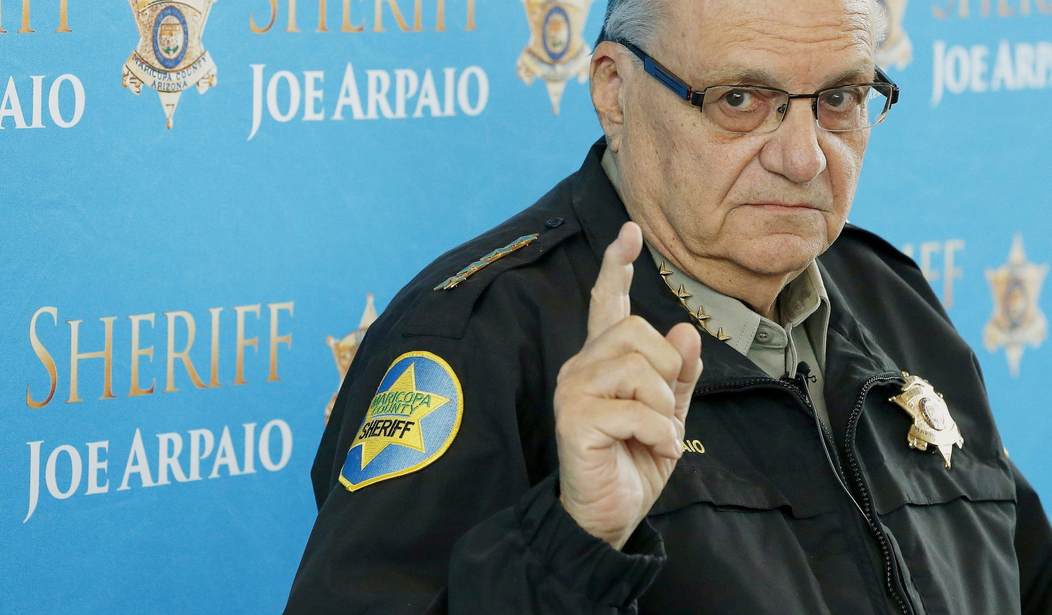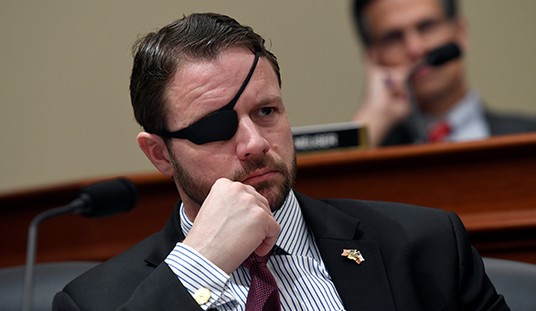Maricopa County, Ariz., taxpayers are finding that funding their county sheriff’s office is becoming an ever-increasing financial burden. Thanks to a May 13 contempt of court order, the bill is only going to becoming more expensive.
The Maricopa County Board of Supervisors has approved a tentative $2.3 billion budget for fiscal 2017. More than half of that money goes for public safety and criminal justice.
That umbrella covers things like the construction of new and the renovation of old courthouses, turning two old jails into county office space, and the price that always has to be paid for the daily enforcement of the law.
The public safety budget accounts for 53 percent of the county’s fiscal 2017 spending, up from 51 percent in the current fiscal year, an increase of $117 million.
Some supervisors and department budget directors complained about being forced to take money out of the county’s general fund for jail expenses, even though the prison population has been declining. Others blamed the increase in spending on the rising costs associated with more children becoming wards of the courts.
But what bothered Supervisor Steve Gallardo the most was the increasing cost of complying with court orders in the Melendres v. Arpaio class-action discrimination and racial-profiling case against the Maricopa County Sheriff’s Office.
Sheriff Joe Arpaio, who found national fame as a dedicated advocate of strict law-and-order, along with his office was found to have engaged in racial profiling and unlawful traffic stops of Latinos, and discrimination in connection with the MCSO’s immigration raids.
The lawsuit was filed in 2007. Six years later, U.S. District Judge G. Murray Snow issued a sweeping decision finding that that Sheriff Arpaio and his agency had relied on racial profiling and illegal detentions to target Latinos.
Judge Snow also issued an order mandating changes by Arpaio and his office to prevent continued misconduct and safeguard the community from future violations of their constitutional rights.
A court-appointed monitor has the task of keeping track of the behavior of the sheriff’s office in regard to Latinos and others. Snow also insisted on audio and video recording of all traffic stops by the MCSO and comprehensive recordkeeping associated with those traffic stops.
None of that comes cheap.
Compliance with that order will account for more than ten percent of the increase in public safety spending. And that is before the legal expenses are added to the bill.
The $13.2 million budgeted for FY 2017 comes on top of the $41 million the county has paid in connection with the case over the past eight years, just to cover legal expenses until Arpaio’s office is released from the supervision of the court monitor.
The Republic reported one county official said they were paying $800,000 to $900,000 just for the maintenance of court-ordered body cams.
Gallardo told his fellow supervisors that he wants to see more oversight of where all the money being spent on this case is going, and he wants to see more progress given that the federal judge in the Melendres case has consistently found the sheriff’s office slow in complying with the court’s orders.
“If we are spending this money,” Gallardo said, “I want to see the Sheriff’s Office moving forward, not backward.”
Based on a May 13 contempt of court order, the Maricopa County Sheriff’s Office may not be running in reverse, but it isn’t advancing nearly quickly enough.
In fact, the MCSO’s progress is so slow, it borders on the illegal.
The court monitor of the MCSO said the sheriff’s office has been too slow to make changes ordered by Snow and has not stopped its immigration patrols, as mandated by the judge.
The MCSO was found to be in 61 percent compliance in creating new policies, and only 38 percent in compliance with court orders in carrying out those changes.
Arpaio testified in April that he failed to understand Snow’s order regarding his immigration patrols. He also took responsibility for the MCSO failing to follow the judge’s mandates in the traffic-stop racial-profiling case.
“It hurts me, after 55 years, to be in this position,” Arpaio testified.
Sheriff Arpaio and three of his deputies were held in civil contempt for failing to follow Snow’s orders in his Melendres v. Arpaio decision.
“The court finds that the defendants have engaged in multiple acts of misconduct, dishonesty, and bad faith with respect to the plaintiff class and the protection of its rights,” U.S. District Judge Snow wrote in a 162-page ruling.
Arpaio’s lawyers said they were reviewing the contempt order and expected to file a response. Sheriff Joe Arpaio tweeted, “I never hide from the media, but my policy has been I don’t talk about ongoing litigation.”
Arpaio and three of his deputies will be back in court May 31 for a hearing. They could be charged with criminal intent, which might mean fines, probation, or even jail time for these officers of the law.
At the very least, it’s going to cost Maricopa County more money.
“The civil ruling will likely result in Snow ordering more substantial oversight for MCSO (Maricopa County Sheriff’s Office),” KTAR-TV legal analyst Monica Lindstrom said. “I could see Judge Snow ordering that the Department of Justice has a heavier hand in the day-to-day activities of MCSO.”









Join the conversation as a VIP Member